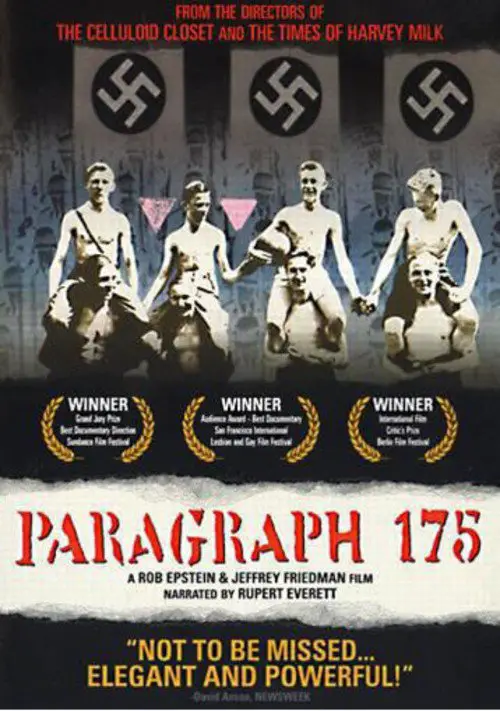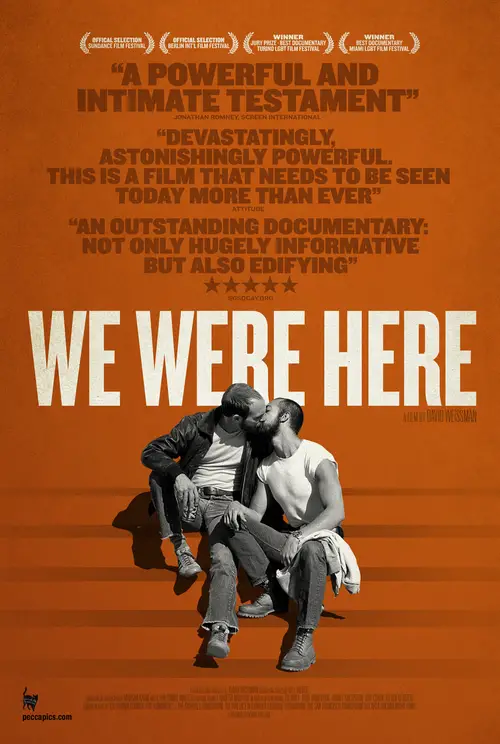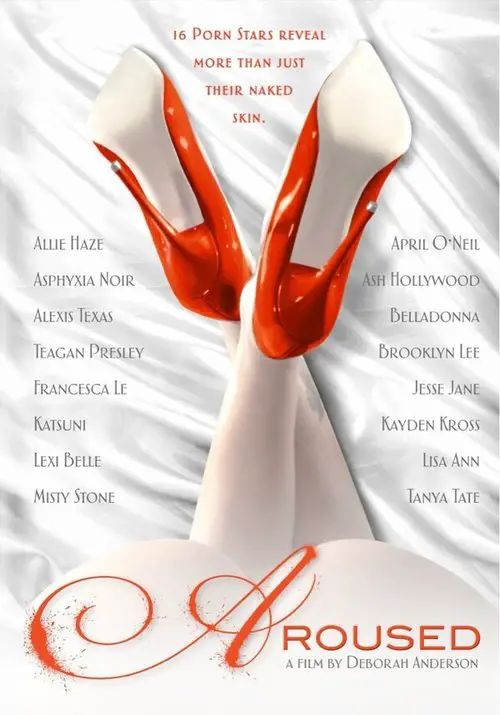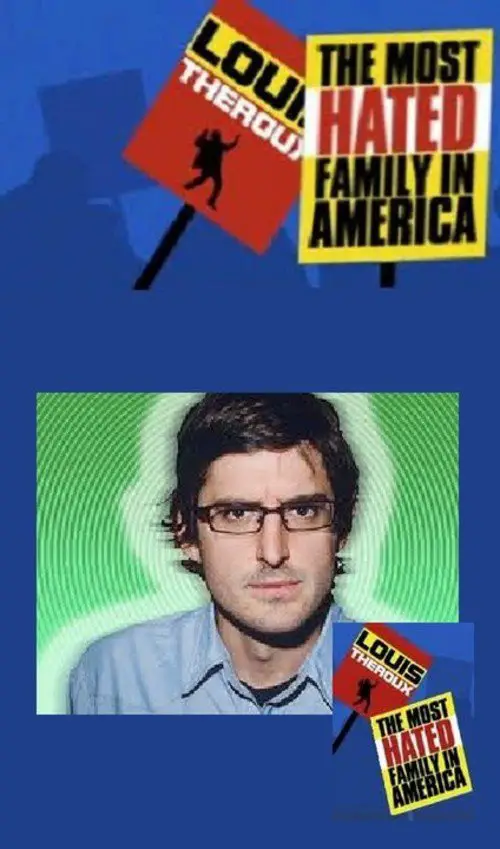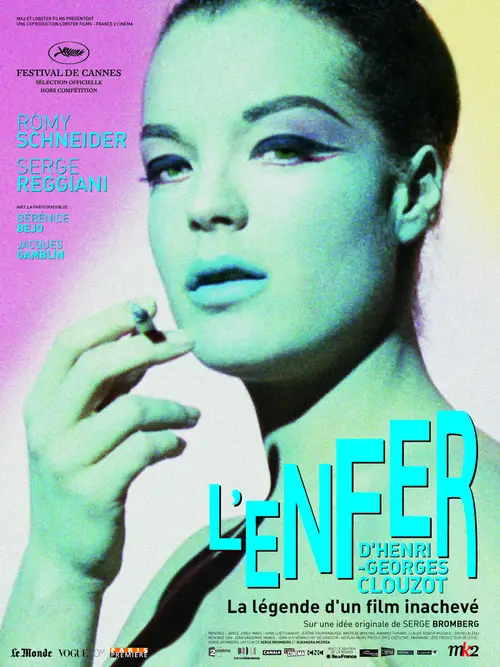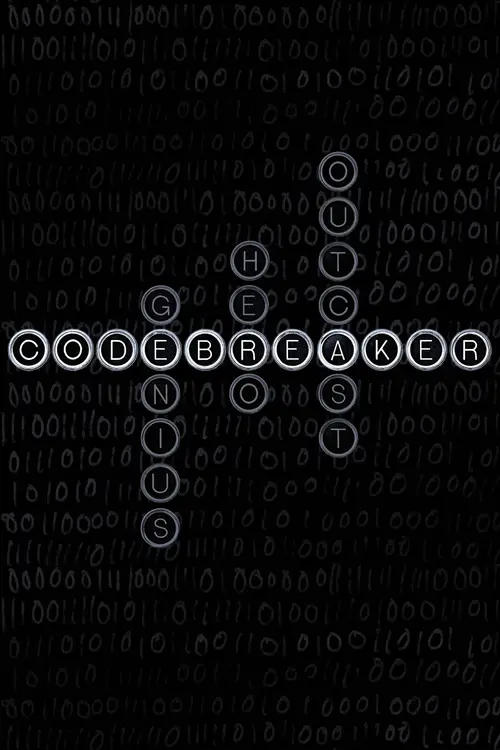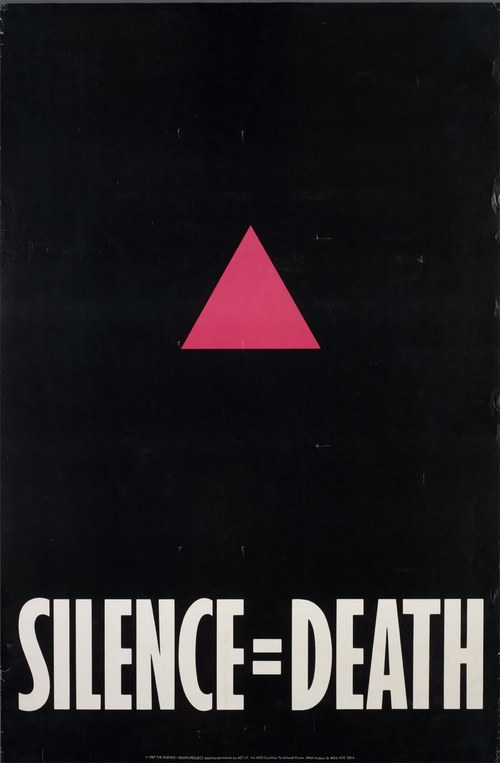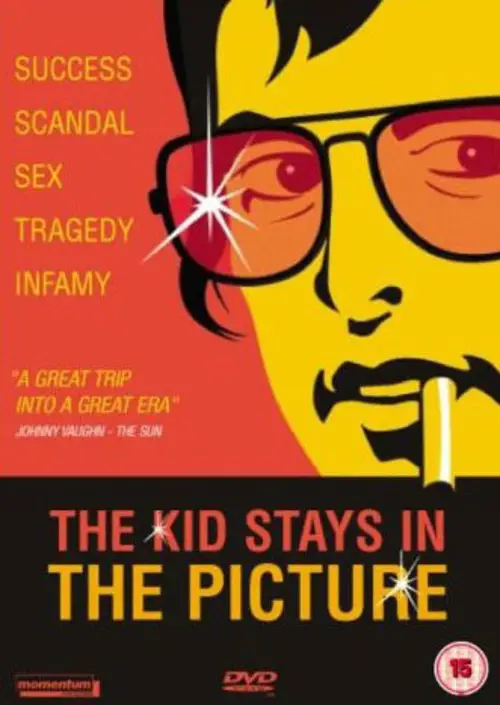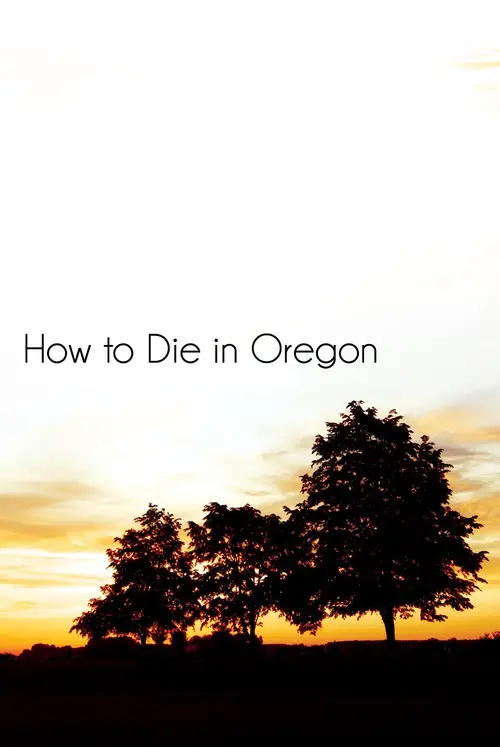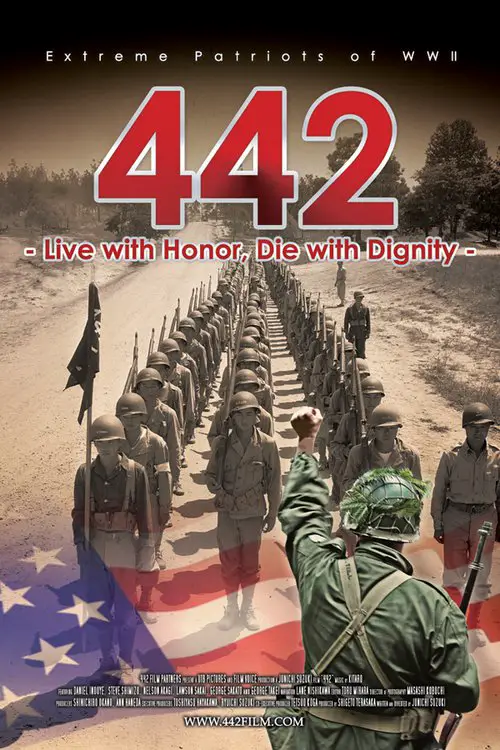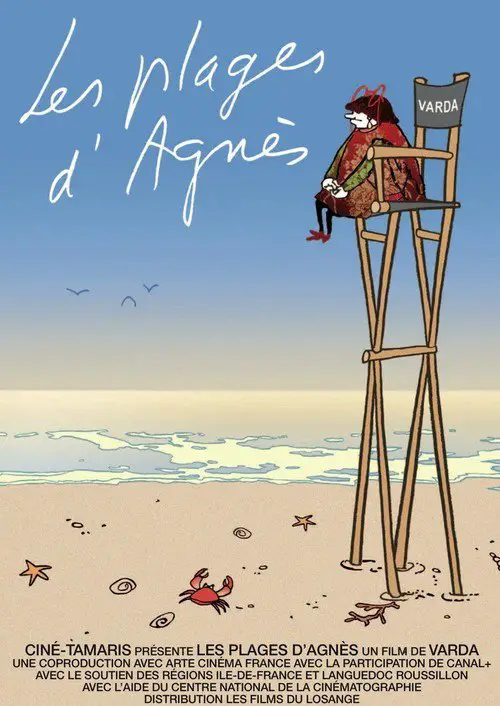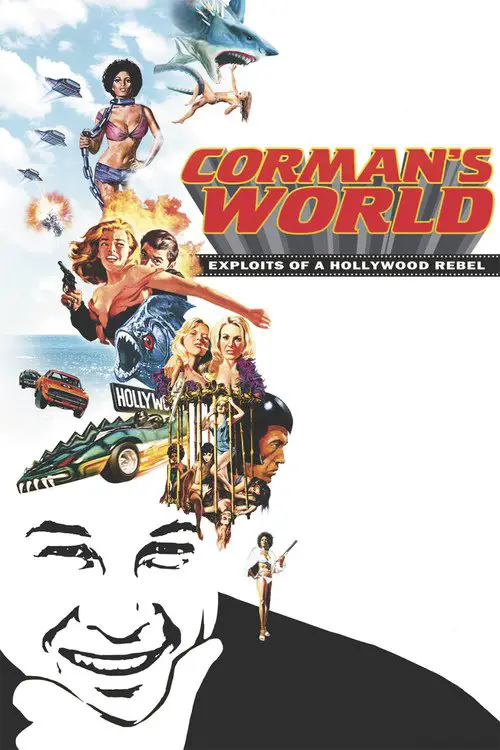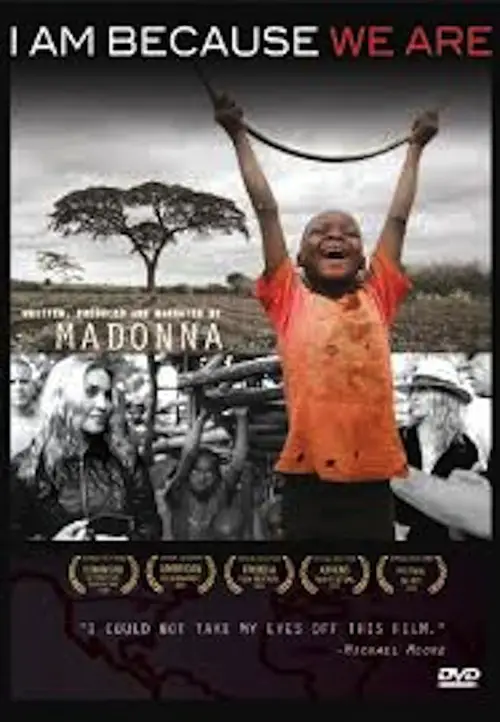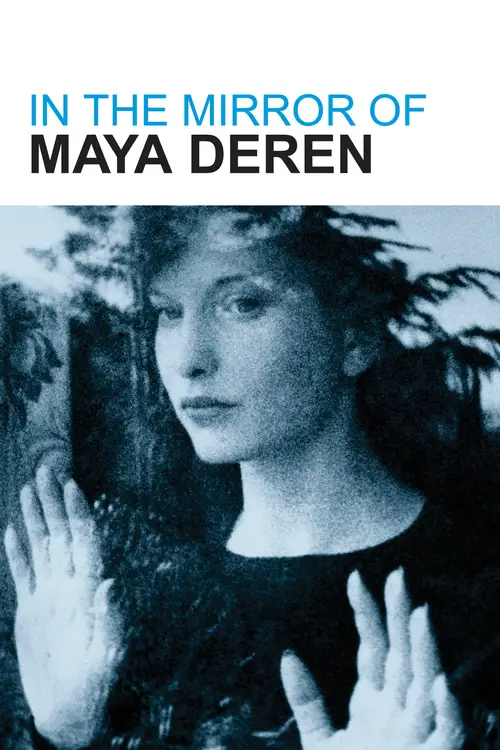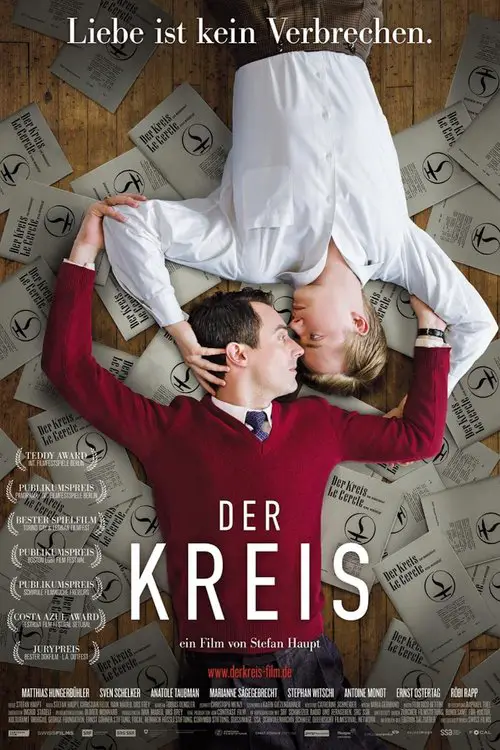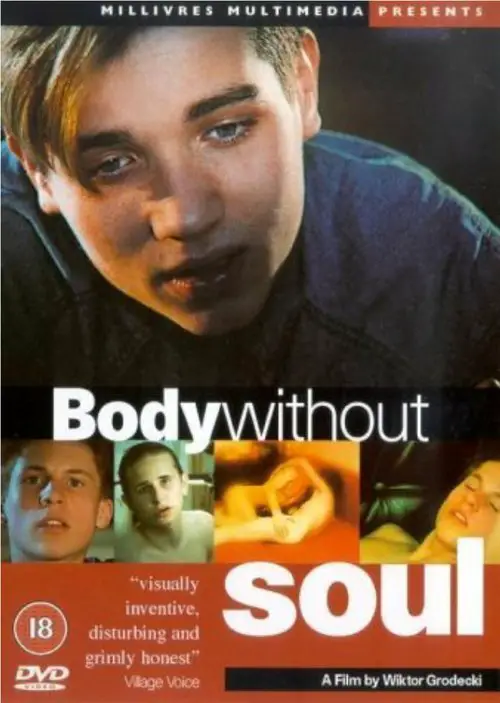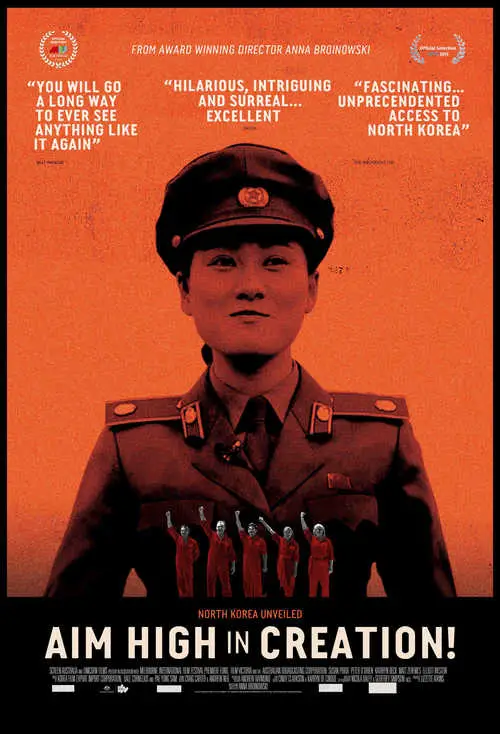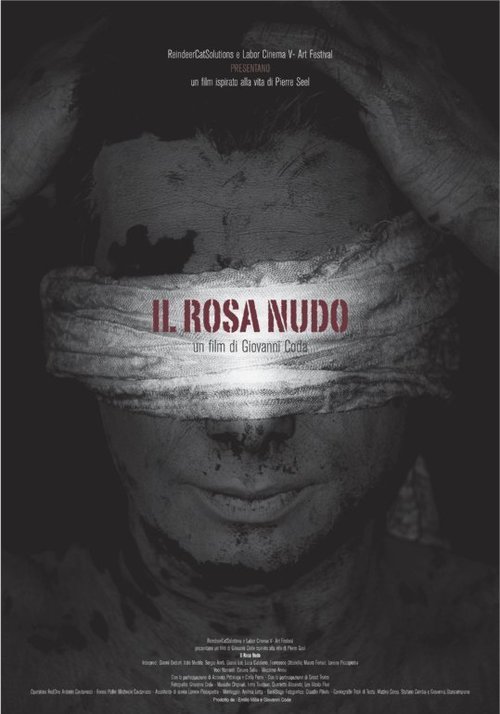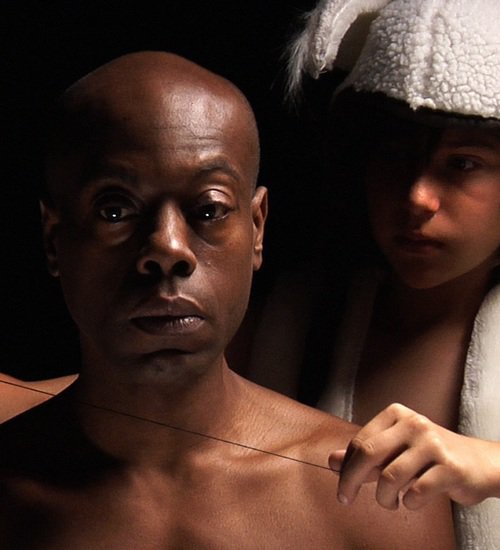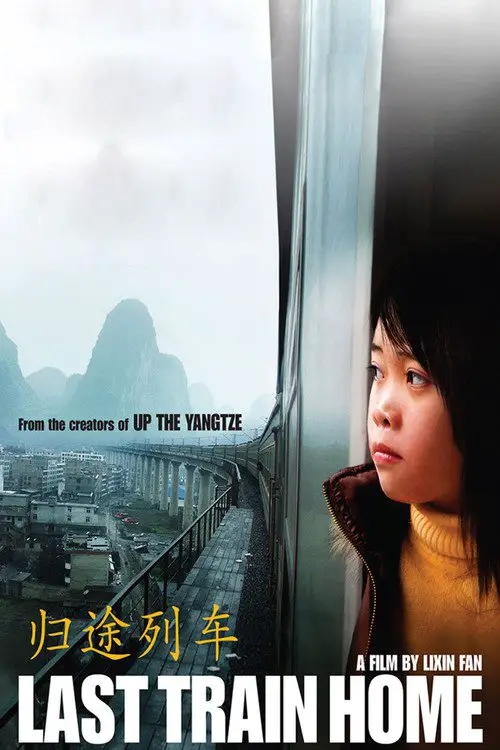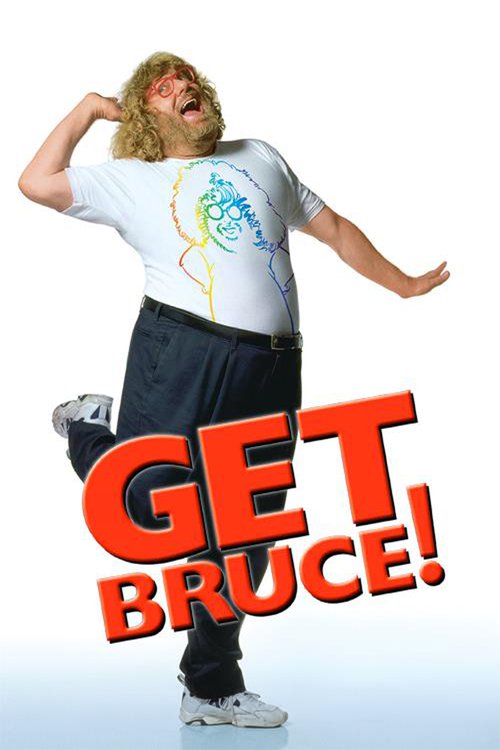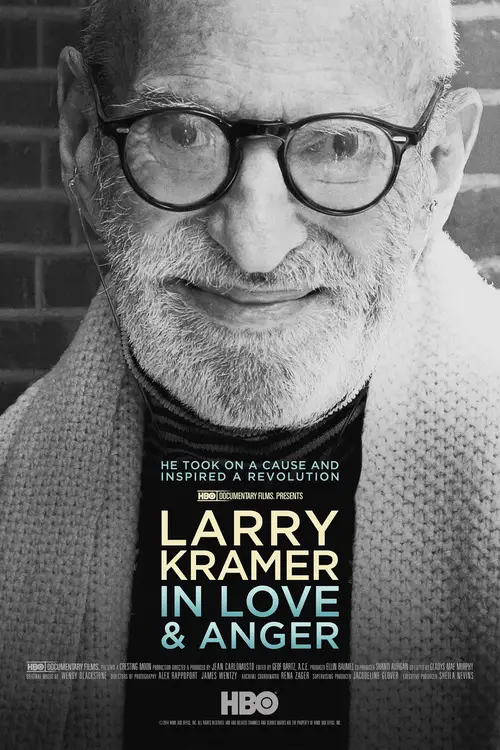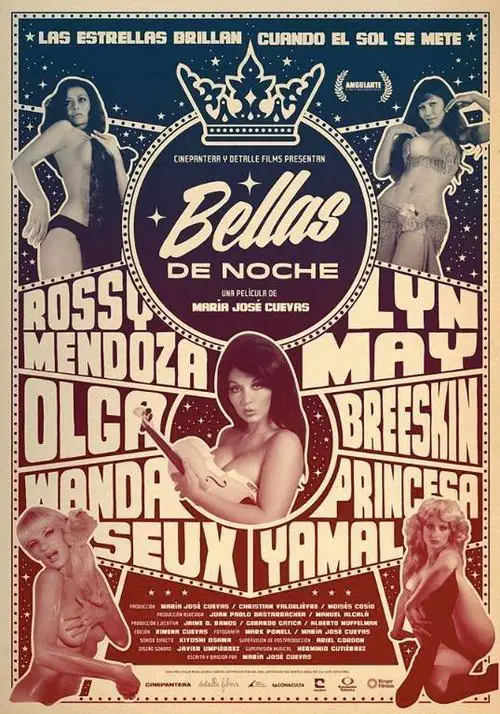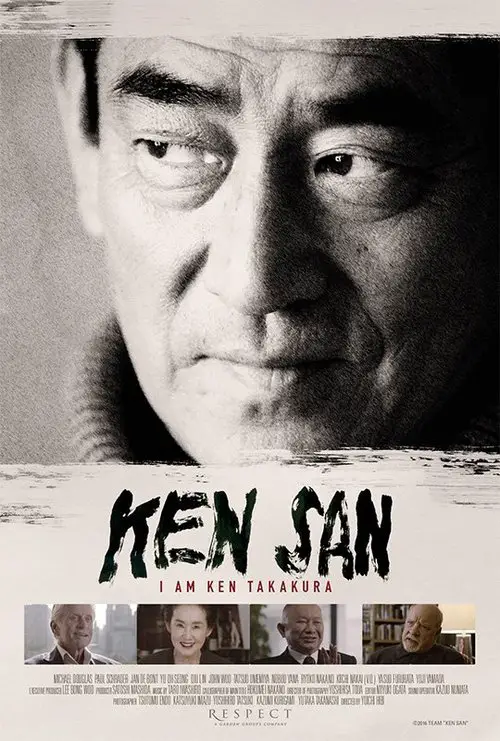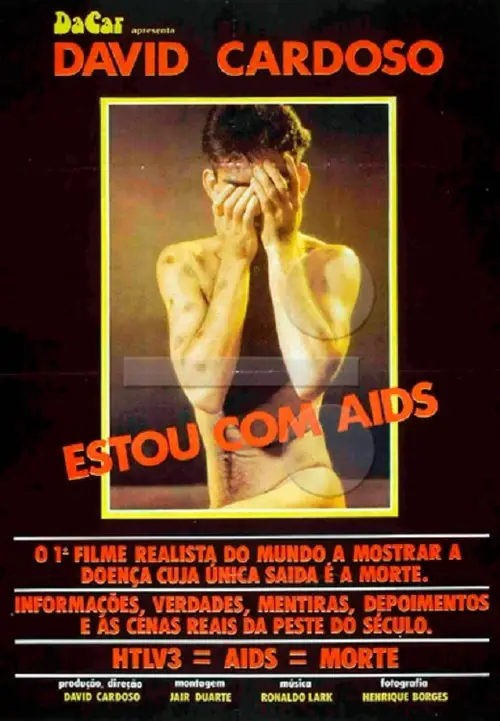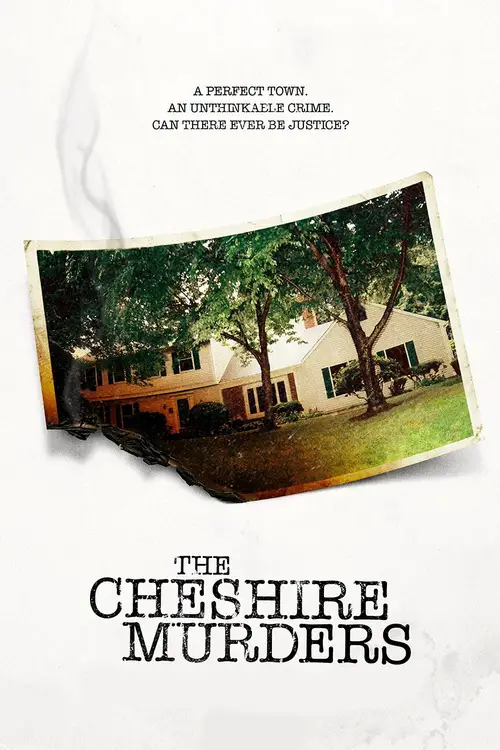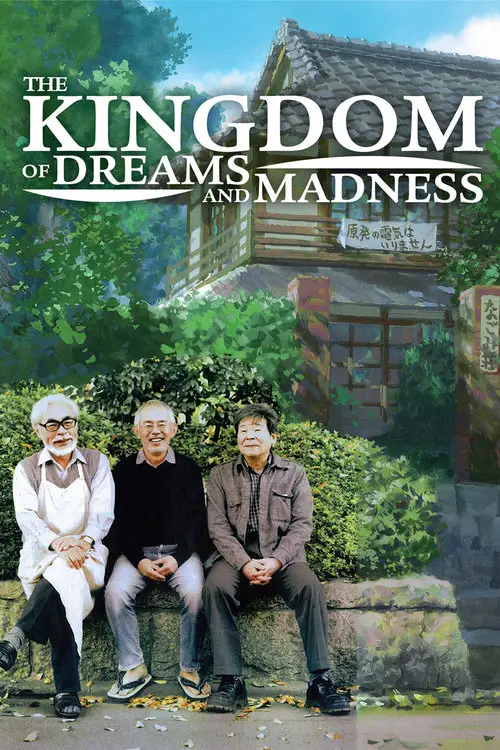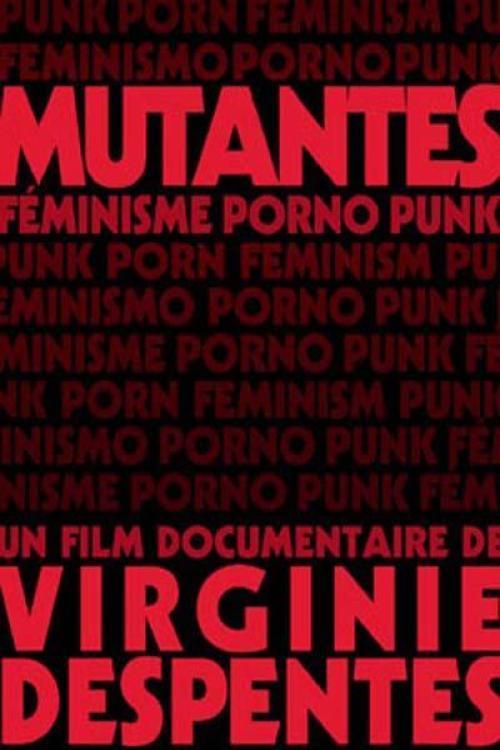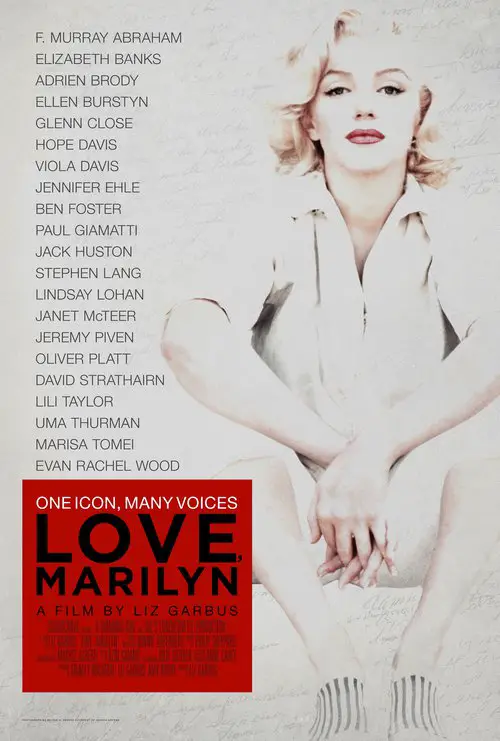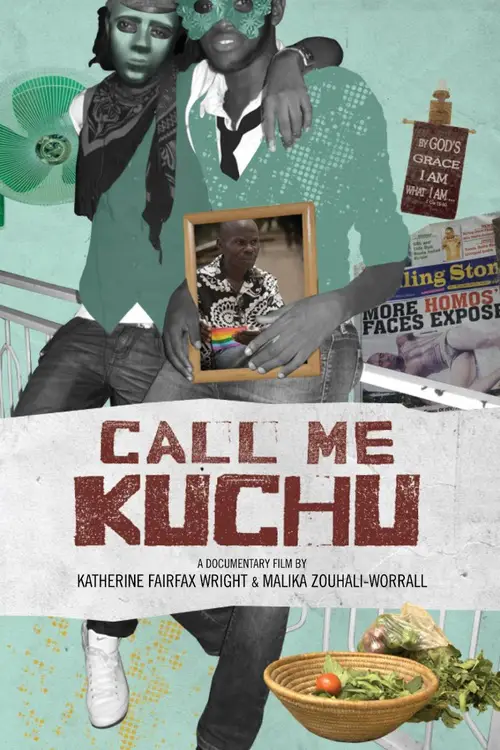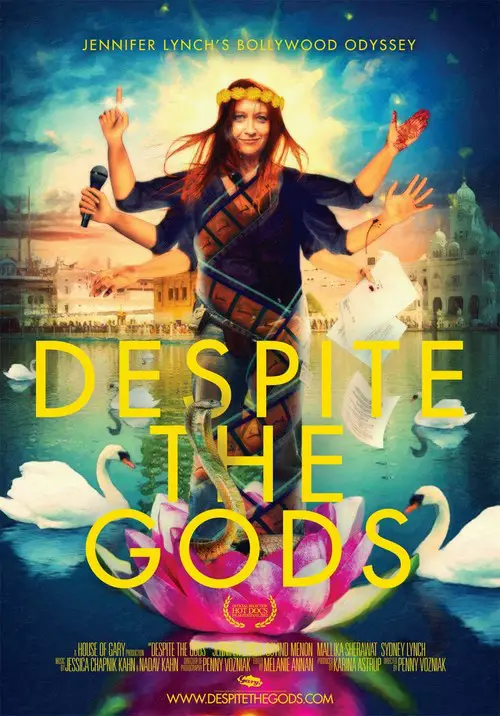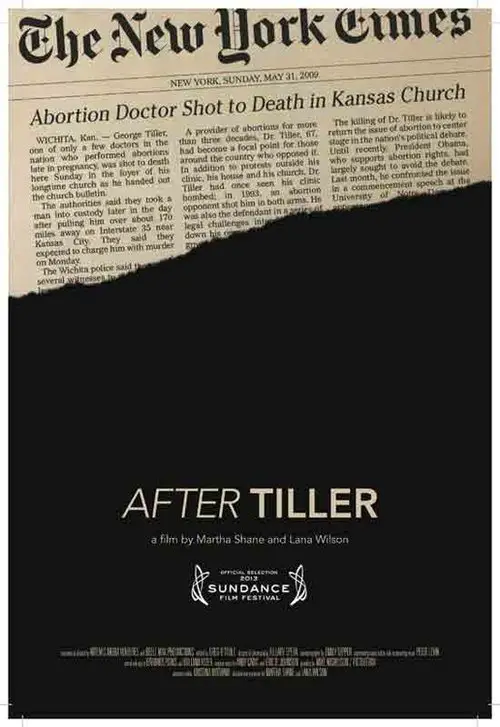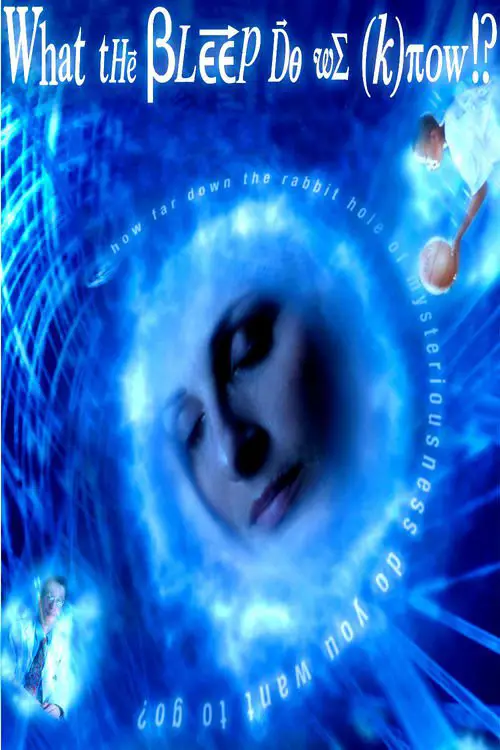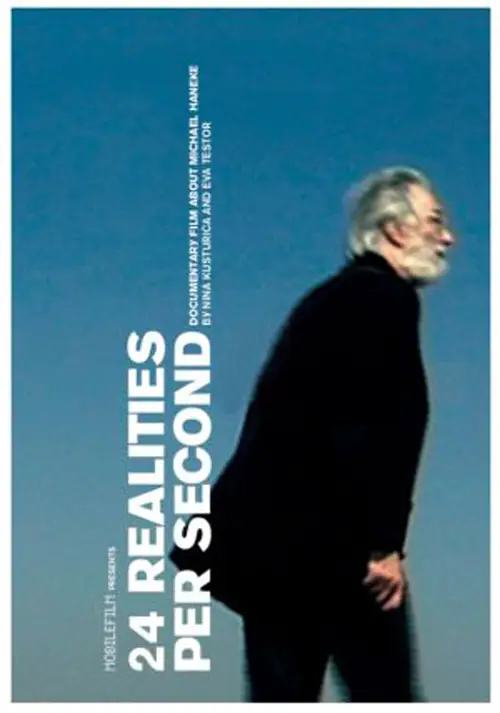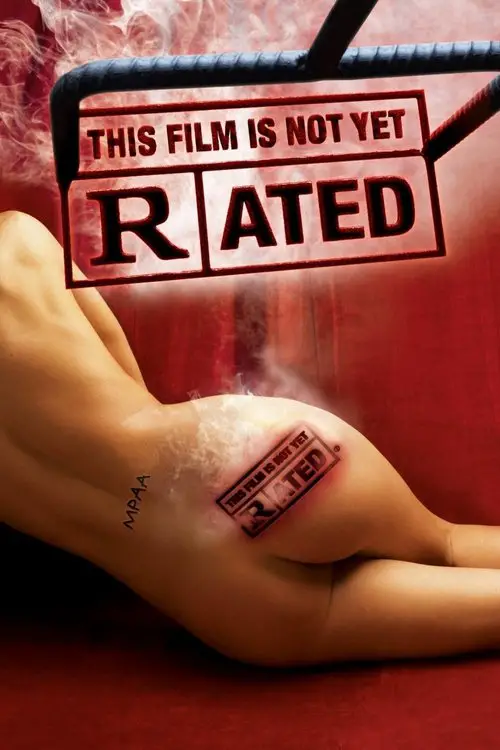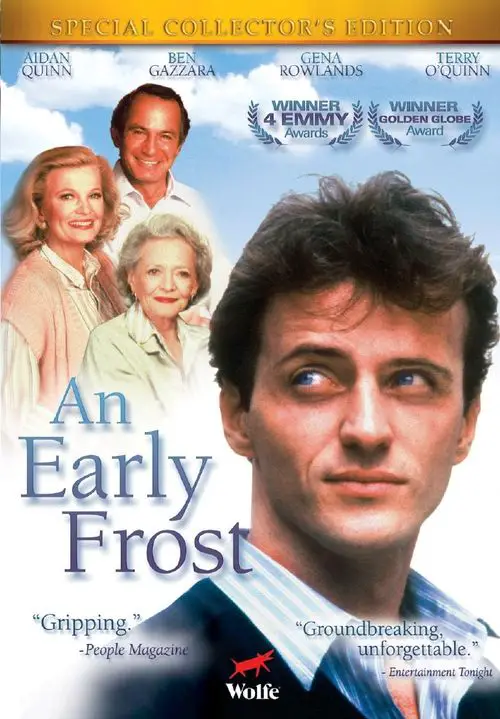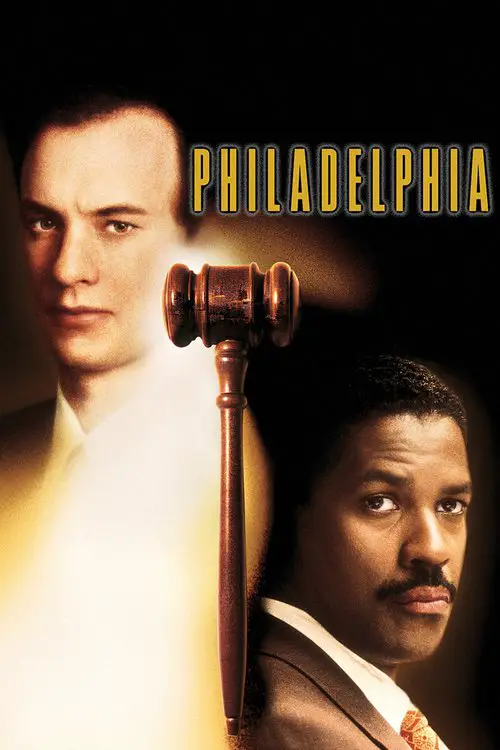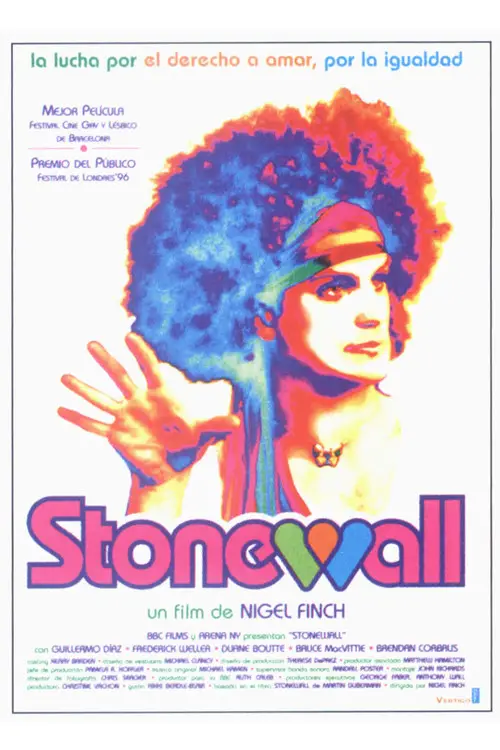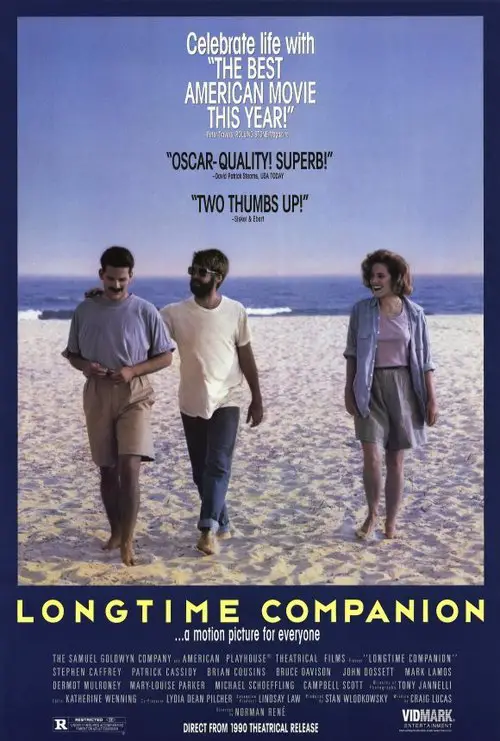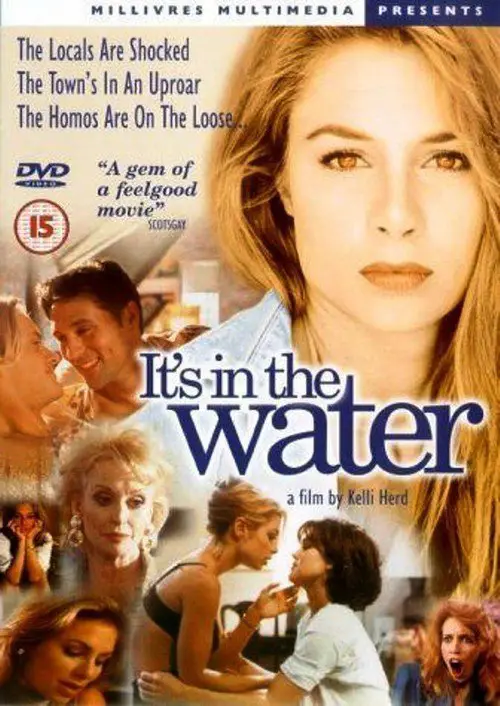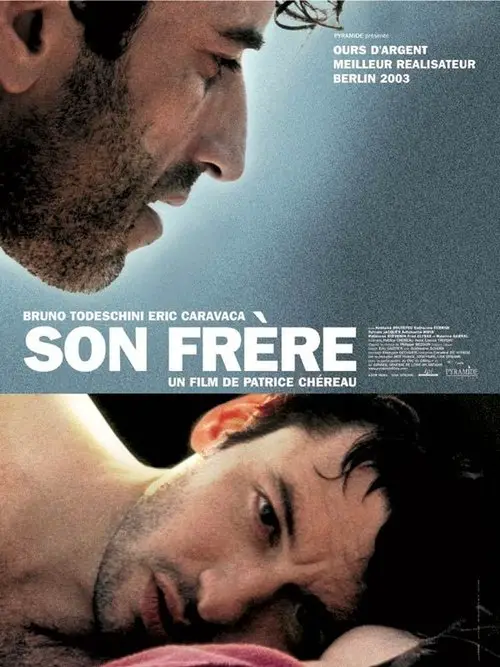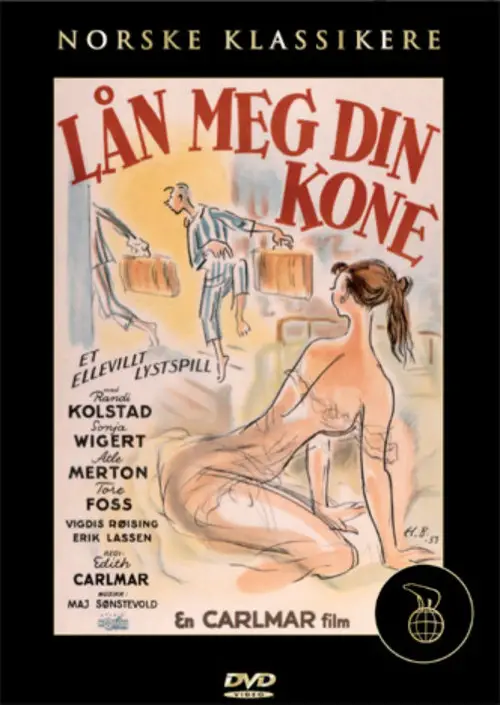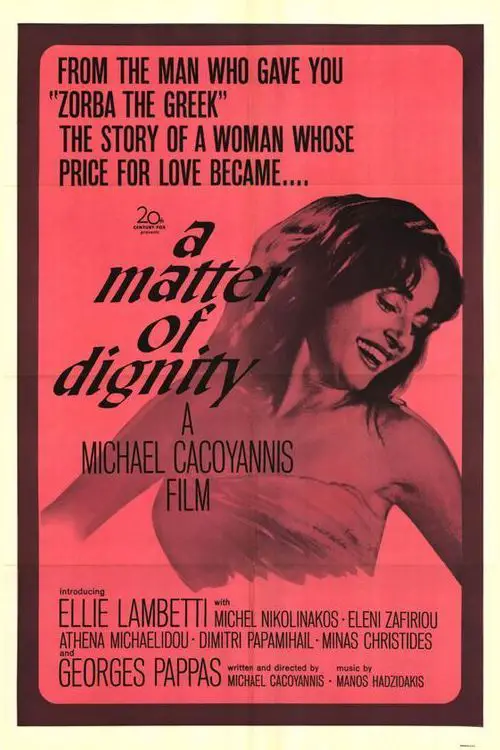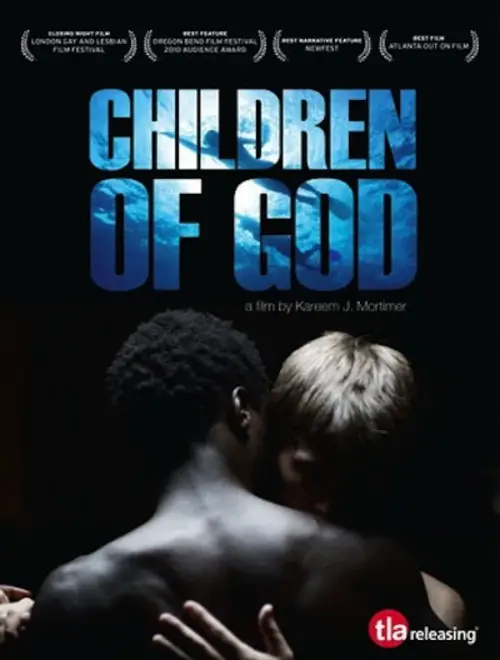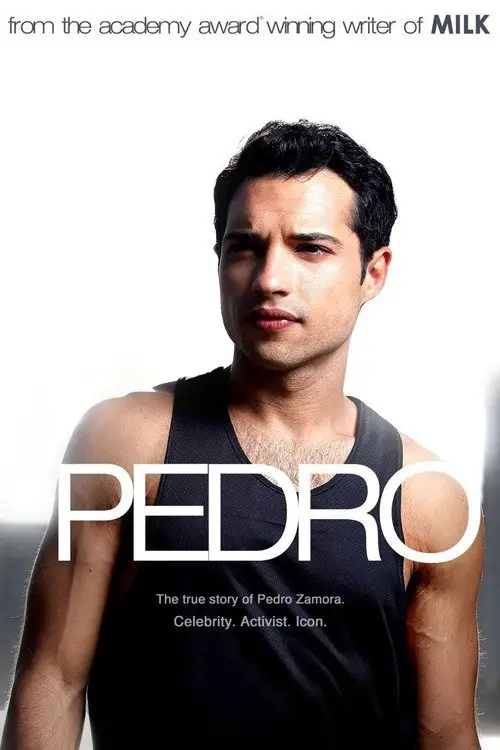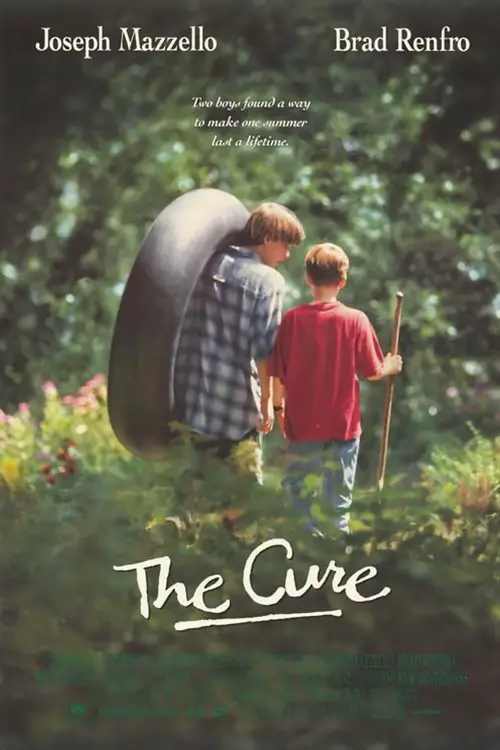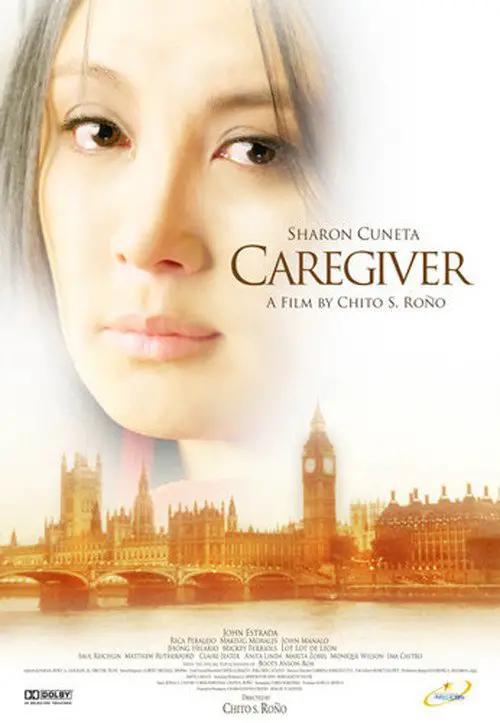A Finished Life: The Goodbye & No Regrets Tour (2009)
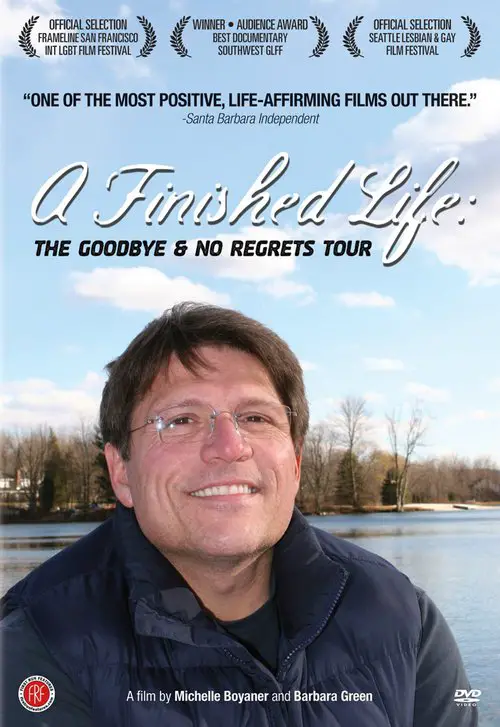
Similar movies
'We Were Here' is the first film to take a deep and reflective look back at the arrival and impact of AIDS in San Francisco, and how the City's inhabitants dealt with that unprecedented calamity. It explores what was not so easy to discern in the midst of it all - the parallel histories of suffering and loss, and of community coalescence and empowerment.
Get up close and personal with 16 of the most successful women in the adult film industry as they shed their clothes for an intimate photo shoot with director Deborah Anderson. As questions are asked, personal stories about their lives are revealed, from why they chose the business of sex to how they got into it in the first place. These porn stars have always been discreet about their private lives in the past, yet Anderson has a way of opening up a dialog allowing them to share more than just their naked skin on screen. Their true inner vulnerability is touching, yet the characters they have created are confident and intoxicating. Once you hear their stories, you'll never look at them in the same way again.
This documentary about Henri-Georges Clouzotâs unfinished 1964 psycho-thriller LâEnfer is as tantalizing as it is frustrating. Despite remaining one of the most masterful of French directors, Cluozot inexplicably seems to have lost control on the big-budget production of LâEnfer. The long-lost raw footage is intriguing and dazzling, infused with swirling lights and blue-lipped, cigarette-puffing fantasy temptresses. Although directors Serge Bromberg and Ruxandra Mederea have managed to speak to numerous members of the original crew, this behind-the-scenes investigation has so little to say about the reasons behind Clouzotâs failure to complete the film. In spite of this, the undiminished power of Clouzotâs extraordinary images makes the documentary a fascinating watch.
Alan Turing is the genius British mathematician who was instrumental in breaking the German naval Enigma Code during World War II, arguably saving millions of lives. Turing's achievements went unrecognised during his lifetime. Instead he ended up being treated as a common criminal, for being homosexual at a time when homosexual acts were a crime. In 1952, he was convicted of 'gross indecency' with another man and was forced to undergo so-called 'organo-therapy' - chemical castration. Two years later, he killed himself with cyanide, aged just 41. Alan Turing was driven to a terrible despair and early death by the nation he'd done so much to save.
Sex Positive explores the life of Richard Berkowitz, a revolutionary gay S&M hustler turned AIDS activist in the 1980s, whose incomparable contribution to the invention of safe sex has never been aptly credited. Mr. Berkowitz emerged from the epicenter of the epidemic demanding a solution to the problem before the outside world would take heed. Now destitute and alone, Mr. Berkowitz tells his story to a world who never wanted to listen.
Silence = Death is a 1990 documentary film directed, written and produced by Rosa von Praunheim. The film centers on the response of some New York City's artist to the AIDS epidemic. Interviewees includes East Village artist David Wojnarowicz, poet Allen Ginsberg, artists Keith Haring, Peter Kunz, Bern Boyle and many others. It is the first part of von Praunheim and Phil Zwicklerâs trilogy about AIDS and activism it was followed by Positive (the third part, about the Aids epidemic in Germany, was never released).
In 1994 Oregon became the first state to legalize physician-assisted suicide. At the time, only Belgium, Switzerland, and the Netherlands had legalized the practice. 'How to Die in Oregon' tell the stories of those most intimately involved with the practice today -- terminally ill Oregonians, their families, doctors, and friends -- as well as the passage of an assisted suicide law in Washington State.
Medal of Honor Recipient George Sakato said with tear, ' I am not a hero. I just killed a lot of people. It's not good. This medal is for the people who couldn't return their homes, not for me.' Even many soldiers who received the decoration still have deep scars in their hearts now. He is the veteran of 442nd Regimental Combat Team in WW2 composed of Japanese Americans, who were at first seen as the problem because of their race, but later seen as problem solvers because of their splendid achievements on the battle field. They had to fight not only the enemy but also prejudice. This is the story of the 442nd and their veterans now and then.
Filmmaking icon Agnès Varda, the award-winning director regarded by many as the grandmother of the French new wave, turns the camera on herself with this unique autobiographical documentary. Composed of film excerpts and elaborate dramatic re-creations, Varda's self-portrait recounts the highs and lows of her professional career, the many friendships that affected her life and her longtime marriage to cinematic giant Jacques Demy.
I Am Because We Are is a 2008 documentary film directed by Nathan Rissman and written, narrated, and produced by Madonna through her production company Semtex Films. The film documents the concern over the millions of orphans in the African country of Malawi who have lost parents and siblings to HIV and AIDS, many of whom live on the streets. The film also shows the efforts with Madonna's charitable organisation Raising Malawi in helping with improving their lives and conditions.
Zürich in the mid 50âs: The young shy teacher Ernst Ostertag becomes a member of the gay organisation DER KREIS. There he gets to know the transvesti- te star Röbi Rapp â and immediately falls head over heels in love with him. Röbi and Ernst live through the high point and the eventual decline of the organization, which in the whole of Europe is seen as the pioneer of gay eman- cipation. Ernst finds himself torn between his bour- geois existence and his commitment to homosexuality, for Röbi it is about his first serious love relationship. A relationship which will last a lifetime. The film looks back from the present to the time when the âMotherâ of all European homosexual or- ganizations had its high point to the time it slowly fell apart. While the repression against homosexu- als became increasingly more intense in Zurich, two young and very different men fight for their love and â together with their friends â for the rights of gays.
Commentator-comic Bill Maher plays devil's advocate with religion as he talks to believers about their faith. Traveling around the world, Maher examines the tenets of Christianity, Judaism and Islam and raises questions about homosexuality, proof of Christ's existence, Jewish Sabbath laws, violent Muslim extremists.
Documentary look at doomed male prostitutes in Prague, ages 15 to 18, who troll at the public swimming pool, the train station, a video arcade, and a disco. After the boys talk about how they got in the game, the camera follows them to the home of Pavel Rousek. Under the name Hans Miller, he makes gay porno videos, primarily for German distribution. Intercut with a movie shoot chez Rousek is an interview that follows him to his day job at a morgue, where he performs an autopsy as he talks about his work. The sex is without protection; the boys are without family. They talk about their bodies and souls, money, their sexual orientation, AIDS, their dreams, and death.
A revolutionary film about the cinematic genius of North Korea's late Dear Leader Kim Jung-IL, with a groundbreaking experiment at its heart - a propaganda film, made according to the rules of his 1987 manifesto. Through the shared love of cinema, AIM HIGH IN CREATION! forges an astonishing new bond between the hidden filmmakers of North Korea and their Free World collaborators. Revealing an unexpected truth about the most isolated nation on earth: filmmakers, no matter where they live, are family.
What "That's Entertainment" did for movie musicals, "The Celluloid Closet" does for Hollywood homosexuality, as this exuberant, eye-opening movie serves up a dazzling hundred-year history of the role of gay men and lesbians have had on the silver screen. Lily Tomlin narrates as Oscar-winning moviemaker Rob Epstein (The Times of Harvey Milk and Common Threads: Stories from the Quilt) and Jeffrey Friedman assemble fabulous footage from 120 films showing the changing face of cinema sexuality, from cruel stereotypes to covert love to the activist triumphs of the 1990s. Tom Hanks, Susan Sarandon, Whoopi Goldberg, Tony Curtis, Harvey Fierstein and Gore Vidal are just a few of the many actors, writers and commentators who provide funny and insightful anecdotes.
Among the millions of victims of the Nazi madness during the Second World War, Pierre Seel was charged with homosexuality and imprisoned in the Schirmeck concentration camp. He survived this terrifying experience of torture and humiliation, and after the war he married, had three children, and tried to live a normal life. In 1982, however, he came to terms with his past and his true nature and decided to publicly reveal what he and thousands of other homosexuals branded with the Pink Triangle had undergone during the Nazi regime. Il Rosa Nudo (Naked Rose), inspired by the true story of Pierre Seel, depicts in a theatrical and evocative way the Homocaust, focusing on the scientific theories of SS Physician Carl Peter Værnet for the treatment of homosexuality, which paved the way for the Nazi persecution of gay men.
FIG TREES is a documentary opera about AIDS activists Tim McCaskell of Toronto and Zackie Achmat of Capetown as they fight for access to treatment drugs. Documentary interviews, speeches, press conferences and demonstrations are sampled, taken apart, and set to music, replayed this time as operatic scenes. A surreal fictional narrative is intercut with the stories of their struggles against government and the pharmaceutical industry. In this fictional world, Gertrude Stein decides to write a tragic opera about Tim and Zackie and their saint-like heroism. She kidnaps them, transports them to Niagara Falls, and forces them to sing a series of complicated avant-garde vocal compositions. However, when Zackie ends his treatment strike and starts taking his pills, Gertrude realizes that there will be no more tragedy, and thus, no more opera.
Affectionate tribute to Bruce Vilanch, who writes material for celebrities who make public appearances, from Oscar hosts and award recipients to Presidents. We meet his mom and see photos of his childhood; in Chicago, he writes for the Tribune and then heads West. Whoopi Goldberg, Billy Crystal, Robin Williams, and Bette Midler talk with him and to the camera about working with Bruce, and we also watch Bruce help others prepare for Liz Taylor's 60th, Bill Clinton's 50th, and an AIDS awards banquet where the hirsute, rotund Vilanch lets his emotions show.
From the onset of the AIDS epidemic, author Larry Kramer emerged as a fiery activist, an Old Testament-style prophet full of righteous fury who denounced both the willful inaction of the government and the refusal of the gay community to curb potentially risky behaviors. Co-founder of both the service organization Gay Men's Health Crisis and the direct action protest group ACT UP, Kramer was vilified by some who saw his criticism to be an expression of self-hatred, while lionized by others who credit him with waking up the gay communityâand, eventually, the government and medical establishmentâto the devastation of the disease.
In the early-morning hours of July 23, 2007, in Cheshire, Conn., ex-convicts Steven Hayes and Joshua Komisarjevsky broke into the family home of Dr. William Petit, his wife, Jennifer Hawke-Petit, and their daughters, Michaela, 11, and Hayley, 17. Dr. Petit was beaten and tied to a pole in the basement. The three women were bound in their bedrooms while the men ransacked the house. The brutal ordeal continued throughout the morning, ending with rape, arson and a horrific triple homicide.
In Uganda, a new bill threatens to make homosexuality punishable by death. David Kato - Uganda's first openly gay man - and his fellow activists work against the clock to defeat the legislation while combating vicious persecution in their daily lives. But no one, not even the filmmakers, is prepared for the brutal murder that shakes the movement to its core and sends shock waves around the world. (from imdb)
For a gay filmmaker, filming in Saudi Arabia presents two serious challenges: filming is forbidden in the country and homosexuality is punishable by death. For filmmaker Parvez Sharma, however, these were risks he had to assume as he embarked on his Hajj pilgrimage, a journey considered the greatest accomplishment and aspiration within Islam, his religion. On his journey Parvez aims to look beyond 21st-century Islamâs crises of religious extremism, commercialism and sectarian battles. He brings back the story of the religion like it has never been told before, having endured the biggest jihad there is: the struggle with the self.
Since the assassination of Dr. George Tiller in Kansas in 2009, only four doctors in the United States continue to perform third-trimester abortions. These physicians, all colleagues of Dr. Tiller, sacrifice their safety and personal lives in the name of their fierce, unwavering conviction to help women.
Amanda (Marlee Maitlin) is a divorced woman who makes a living as a photographer. During the Fall of the year Amanda begins to see the world in new and different ways when she begins to question her role in life, her relationships with her career and men and what it all means. As the layers to her everyday experiences fall away insertions in the story with scientists, and philosophers and religious leaders impart information directly to an off-screen interviewer about academic issues, and Amanda begins to understand the basis to the quantum world beneath. During her epiphany as she considers the Great Questions raised by the host of inserted thinkers, Amanda slowly comprehends the various inspirations and begins to see the world in a new way.
Directors Nina Kusturica and Eva Testor followed Michael Haneke for a period of two and a half years. They accompanied him to film premieres and public appearances, radio interviews and photo shoots; they observed him as he scouted locations, directed actors on the set, and made final cuts in the editing room. In between, on long train and car rides, Haneke spoke candidly about his childhood, his transition to filmmaking, and his views on cinema, discussing films that inspired him and his own work (he counts The Seventh Continent and 71 Fragments of a Chronology of Chance among his favorites). What emerges in this insightful documentary is a portrait of a dedicated filmmaker, a charming yet elusive figure in thrall to cinema and the constant perfection of his craft.
Kirby Dick's provocative documentary investigates the secretive and inconsistent process by which the Motion Picture Association of America rates films, revealing the organization's underhanded efforts to control culture. Dick questions whether certain studios get preferential treatment and exposes the discrepancies in how the MPAA views sex and violence.
Set in the mid-eighties Michael Pierson, a young gay man, is struck with AIDS in the prime of his life. He's forced to be open about the disease and his homosexuality for the first time with his co-workers (he's a successful lawyer) and family. He, and the people around him, must face up to the inevitablity of his death and the disease that's killing him. "An Early Frost" was many people's first look at an AIDS victim as a human being instead of a statistic.
Longtime Companion follows the lives of a small circle of friends from the first mention of the disease in the New York Times in 1981. First referred to as "Gay-Related-Immune-Disorder," we watch the effect of the disease as it devastates the lives of our protagonists. Jumping between Manhattan and Fire Island, vignettes carry us from the it-couldn't-happen-to-me mentality of the early days of the disease to the invasive effect it has had on all of our lives, today. The title of the film comes from the New York Times' refusal to acknowledge homosexual relationships in their obituary section during this period. Instead, survivors were referred to as "Longtime Companions" of the deceased
This rock opera tells the story of one year in the life of a group of bohemians struggling in modern day East Village New York. The story centers around Mark and Roger, two roommates. While a former tragedy has made Roger numb to life, Mark tries to capture it through his attempts to make a film. In the year that follows, the group deals with love, loss, AIDS, and modern day life.
Thomas has been estranged from his brother Luc for several years, due in part to his difficulties in dealing with Luc's homosexuality. But when Thomas is diagnosed with a rare blood disease, which is difficult to treat and impossible to cure, he decides he wants to bring Luc back into his life. The brothers soon become inseparable, with Luc constantly at Thomas' side as he vainly struggles against the disease and confronts the indignity of treatment. As Thomas and Luc become closer, their new relationship begins to alienate their significant others, and Thomas' father cannot understand why his son doesn't fight against his illness with great vehemence.
"Let Me Borrow Your Wife". This is a light comedy from Edith Carlmar, Norways first woman director. It takes place in a company that sells baby toys. It is time to fill a leading position, and it is known the owner of the company only places married men on leading positions. This leads a young bachelor to "borrow" his best friends wife to have a chance at the position. This leads to a lot of comic misunderstandings, not the least because the owner of the company himself falls for the new young wife.
During one of her parents many parties, Chloe learns they're bankrupt. She's being courted by Niko, a wealthy Greek American, so she decides to charm him. He's quickly captivated. That night, she also meets the masculine Galanos and sparks fly. Niko proposes, Chloe accepts, Galanos tries to change her mind. Her father wants to disclose their finances to Niko, her mother argues against it as a matter of dignity. The family's long-time servant must care for her son, who's had an accident. She's has not been paid in months, reminds Chloe to send money, and waits in her village as hospital bills mount. The servant comes back to Athens, confronts Chloe's mother, and a crisis ensues.
Johnny (Johnny Ferro) is an art student in Nassau whose technique is perfect, but heâs creatively blocked. His teacher sends him off to the rural island of Eleuthera where he meets Romeo (Stephen Tyrone Williams), a hot musician. They begin a clumsy dance of attraction and romance. Romeo has a fiancé and is identified as straight, but heâs been known to play with the boys on the side secretly. The Bahamas are bound by religious traditions that discourage homosexuality and end up forcing gay men into the closet. Lena is a pastorâs wife. Her husband demonizes homosexuality to further his career, yet heâs on the DL as well. When Lena discovers that her husband has infected her with VD, he accuses her of infidelities. These characters are all bound together in this intense drama of love, family and secrets.
The Sea Inside is about Spaniard Ramón Sampedro, who fought a 30-year campaign to win the right to end his life with dignity. It is the story of Ramónâs relationships with two women: Julia a lawyer who supports his cause, and Rosa, a local woman who wants to convince him that life is worth living.
An intimate biopic of Pedro Zamora, an HIV-positive Cuban-American, who was cast for the MTV reality show, The Real World: San Francisco, in 1994. Due to his experience on the Real World, Pedro became a celebrity and a sympathetic face of the AIDS epidemic for millions of Americans who had never met anyone with HIV/AIDS.
Inspired by real-life events, this film explores the experiences of Capt. Ernest Gordon (Ciaran McMenamin) and other Japanese prisoners of war who were enlisted for the grueling task of building the Railroad of Death. As the men struggle to maintain their sanity and will, they begin to drift apart while Major Campbell (Robert Carlyle) plans his escape, Lt. Rigden (Kiefer Sutherland) watches his back, and Gordon attempts to keep his dignity.
Dexter, age 11, who has AIDS, and his next door neighbor Eric, a little older and much bigger, become best friends. Eric also becomes closer to Dexter's mother than to his own, who is neglectful and bigoted and violently forbids their friendship upon learning of it. Dexter and Erik start the journey to find "The Cure" they had read about in the local newspaper.
A grade school English teacher Sarah Gonzales joins the 150,000 Pinoy OFWs working in the United Kingdom to support her Husband, Teddy Gonzales in making a better living for their family. More than just a chronicle of the Filipinos experience working as nurses and caregivers in the UK, this story also charts Sarah's journey to self-discovery from a submissive wife who makes sacrifices for her Husband; Teddy's aspirations to an empowered woman who finds dignity and pride in a humbling job as a Caregiver in London.
A three-paneled look at the worldwide AIDS crisis: in Montreal, a porn actor (Ashmore) schemes to pass his mandatory blood test; a young nun (Sevigny) makes a personal sacrifice for the benefit of a South African village; in rural China, a black market operative (Liu) posing as a goverment-sanctioned blood drawer jeopardizes an entire village's safety
© Valossa 2015–2026
| Privacy Policy
